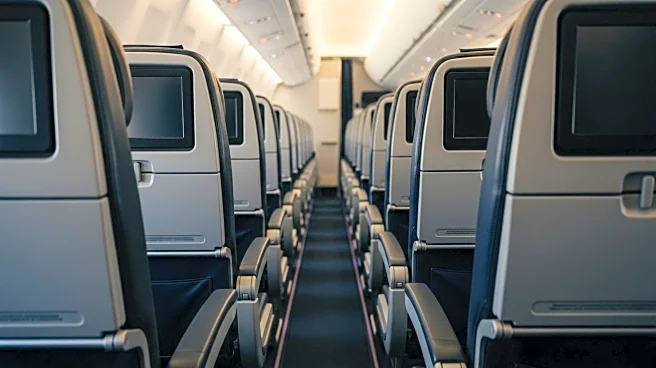What's Happening?
Airlines frequently change seat assignments without notifying passengers, often due to equipment changes. This practice can lead to passengers losing their preferred seats or being downgraded to a lower class. In the U.S., passengers are entitled to a refund of their seat reservation fee if the change occurs within the same class of service. However, airlines are not required to notify passengers or seek their approval for seat changes. This lack of communication can cause stress, particularly for travelers with special needs or those traveling for work. The issue is compounded by the fact that passengers are often unaware of their rights and may not receive compensation.
Why It's Important?
The frequent changes in seat assignments highlight a gap in passenger rights and airline accountability. This issue affects travelers who pay extra for specific seats, as they may not receive the service they expected. The lack of notification and compensation can lead to dissatisfaction and stress among passengers. There is a growing consensus that air travelers need more rights regarding seat changes, and some suggest that new regulations may be necessary to ensure fair treatment. Airlines are legally protected by their contracts of carriage, which allow them to change seat assignments without notice, but this practice is increasingly seen as unfair to consumers.
What's Next?
There is potential for new regulations to address the issue of seat changes, but airlines may first be given the opportunity to improve their practices voluntarily. The Department of Transportation has announced a rule for automatic refunds, but implementation has been inconsistent. Passengers and consumer advocates may push for clearer policies and better communication from airlines. The industry could see changes in how seat assignments are managed, with technology enabling passengers to accept or reject new seat assignments. Airlines may need to commit to notifying customers of seat changes to improve customer service.
Beyond the Headlines
The ethical dimension of this issue involves the balance between airline operational needs and passenger rights. The current practice of changing seats without notification raises questions about transparency and fairness. Long-term, this could lead to shifts in consumer expectations and demands for better service standards. The cultural impact includes increased awareness among travelers about their rights and the importance of advocating for fair treatment.








